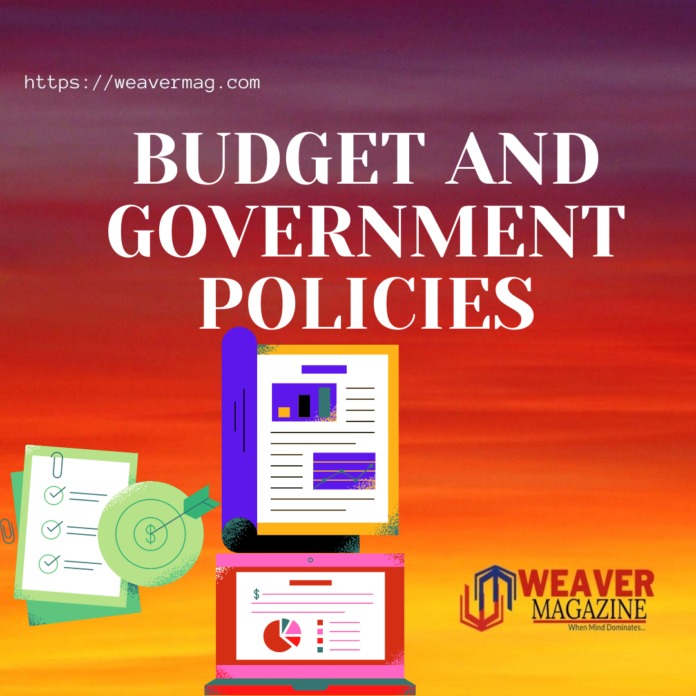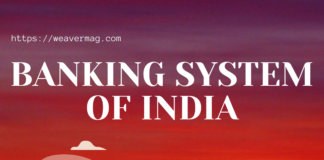Every year there needs to be a session in parliament in which the finance minister of our country needs to present the complete expenditure, income and the entire financial status of our country. One financial year in our country is considered from April 1 to March 31. Even if its role is supposed to be for 1 year but its effect is long lasting and will definitely bear some positive results in following years. For all this to happen, government has some set of objectives to meet so that the results are fruitful.
First thing which government does is deciding the proper distribution and utilization of government funds and services. Government does provide some goods and services in exchange of taxes. The public goods like roads, government administration, national defence, etc. make a few of those services. All of these are beneficial for the well-being of the general people. One of the biggest advantages of having public goods is that no one can be excluded from its use. For example, the use of foot- over bridges are some of the benefits which cannot be tagged and so no fees can be taken from anyone. There are cases when a person cannot be stopped from using a particular service even if he is not able to pay, in such cases such people are called free-riders. Such things which can be used without any direct payment are called as public provisions.
Second thing is distributing the total national income of a financial year. Either of the two things happen, either the money goes to the private sectors or it goes to the government. Now if the money goes to the private company then the money ultimately reaches the general people’s house in the form of salary and then it is called as personal income and if it can be spent then it is called a personal disposable income. From there on government recollects the money for its own expenditure in the form of taxes. This system of the government to fairly distribute the money among the people is called as redistribution function.
Third thing is to keep a watch on the income and employment index. The overall inflation in the country depends upon the spending condition in the country and also upon the aggregate demand. In any particular point of time, the demand of things in our country can be bad at that particular moment government has to intervene to increase demand. This in turn can help in maintaining the employment percentage in our country. Sometimes it can happen that the demand is higher than the availability, in such a condition government needs to reduce the demand. In either of the cases whether government increases or decreases the demand is called as stabilization function. Also, the use of government revenues and spending to affect the economic conditions of our country like macroeconomic conditions consisting of aggregate demand for goods and services, employment, economic growth and inflation is called fiscal policy.
Budget can broadly be divided into two categories revenue budget and capital budget. Revenue budget means the revenue receipts of the government (taxes and others) and the total expenditure met from these revenues, all these are related to current financial year. So, it can further have two parts- revenue receipts and revenue expenditure. Revenue receipts are those which do no directly affect the assets and liabilities of the government. Revenue expenditure are those which do not have any effect on the assets and liabilities of the government. Capital budget means the sum total of capital receipts and payments. It also includes transactions in the Public account (it consists of all the transactions of the government departments). It can be further divided into two parts- Capital Receipts and Capital expenditures. Capital receipts means the receipts which ultimately result in increase in government assets or liabilities. Capital expenditure depict those expenditures which can bring reduction in liabilities or increase assets of the government.
Now if the taxes collected by the government is more than the expenditure then it is called as surplus. Next, if the revenues are less than the expenditure then it is called as deficit. Sometimes it can happen that revenues are equal to the expenditure of the government then it is called as the balanced budget.
In 2003, Parliament did bring in the Fiscal Responsibility and Budget Management Act (FRBM) Act. It was done in order to have a more balanced budget which would result in better macro-economy management and overall better distribution of public funds.
Some of the targets of FRBM Act are as follows:
1.The FRBM rule set a target reduction of fiscal deficit to 3% of the GDP by 2008-09.
2.Revenue deficit has to be reduced by 0.5% of the GDP per year with complete elimination by 2008-09.
3.Reduction of Public Debt.
4.The government has to take appropriate measures to bring reduction in the fiscal deficit and revenue deficit in order to eliminate revenue deficit by 2008-09 and then onwards, more revenue can be created.
5.It mandated setting annual targets for the reduction of fiscal deficit and revenue deficit, contingent liabilities and total liabilities.
6.The government shall end its borrowing from the RBI except for temporary advances.
7.The RBI is not responsible for the primary issues of the central government securities after 2006.
8.The revenue deficit and fiscal deficit may be more than the targets set in the rules only on the basis of national security, calamity and other exceptional grounds to be specified by the Central government.
All of these have a considerable impact on the society and of course on the future of the ruling party as a central government. But it is our responsibility also that we should follow the policies made by the government. So that in the future, if any government wants to make any new policy or a new budget then it can hopefully keep the effect of previous policies or budget in its mind along with its effect on us. This will definitely help in proper economic progress of our country.
By-
Raunak Jha









